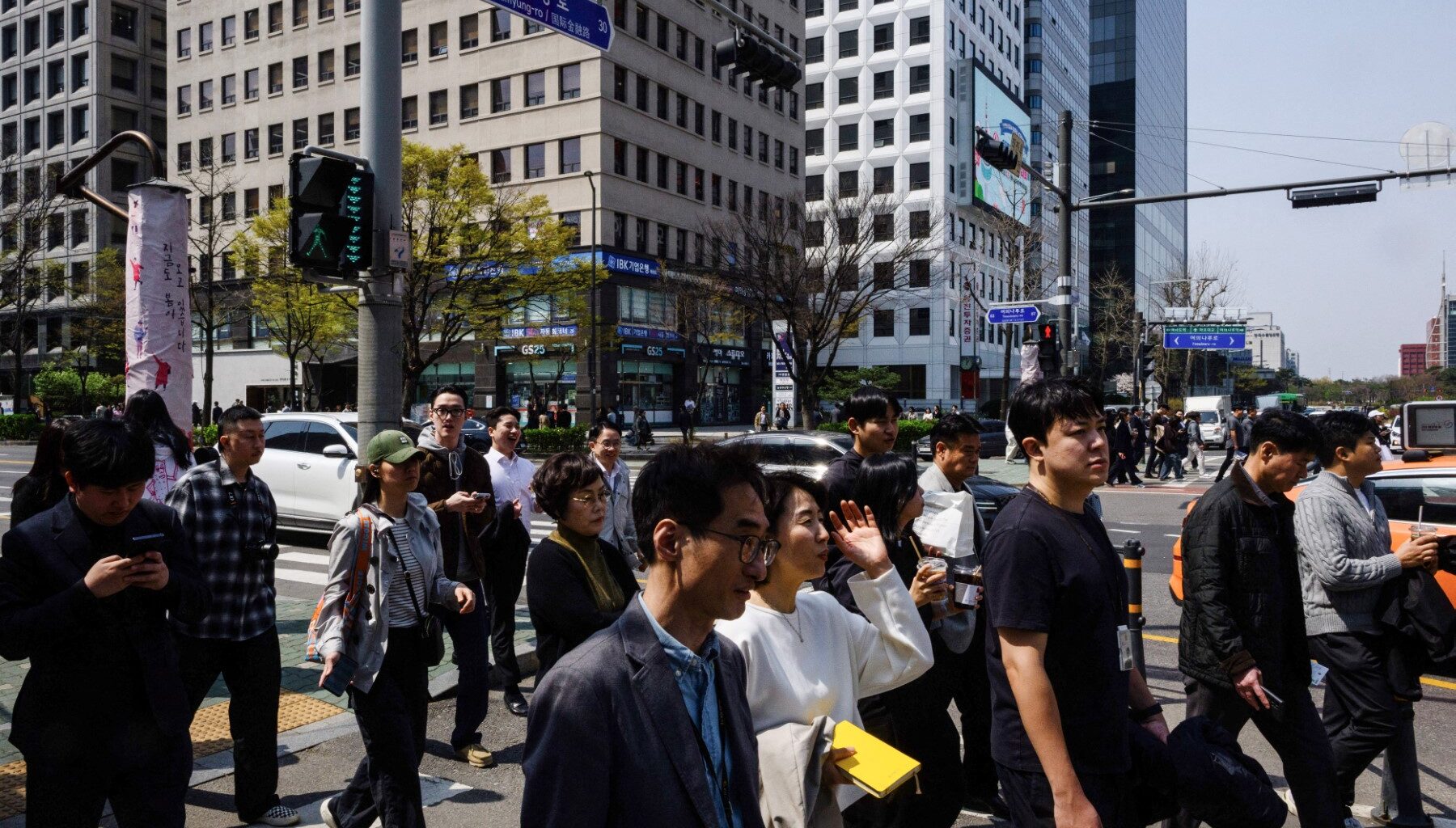October 21, 2025
SEOUL – Public support for Korean unification has dropped to a record low of 49 percent, falling below a majority for the first time since the survey began in 2014, suggesting growing indifference toward North Korea, the poll showed.
The government-funded Korea Institute for National Unification on Monday released the results of its annual public opinion survey on unification and North Korea, which it has conducted each year since 2014.
The survey was conducted through face-to-face interviews with 1,000 adults aged 18 and older nationwide from July 10 to Aug. 13 this year.
When asked, “To what extent do you think unification is necessary?” 49 percent of respondents said it was necessary — the lowest level since the survey began, down 3.8 percentage points from last year’s 52.8 percent.
“This appears to result from the interplay of various factors, including the influence of North Korea’s narratives on two hostile states, the prolonged severance of inter-Korean relations and domestic political dynamics,” KINU said in its report on the survey.
“These results suggest that perceptions of unification have entered a structural phase of change, moving beyond short-term fluctuations,” it added.
KINU also noted that “a decline in the perceived need for unification was observed across all generations.”
In the survey, 63.2 percent of respondents also agreed with the statement, “Unification is unnecessary as long as the two Koreas can peacefully coexist.” This is the highest level since KINU first introduced the question in its 2016 survey.
Meanwhile, 19.6 percent gave a neutral response, while 17.2 percent disagreed.
Along with decreasing interest in unification, public indifference toward North Korea itself has grown.
Asked, “How interested are you in North Korea?” 68.1 percent of respondents said they were “not interested,” the highest level since 2015.
KINU explained that public apathy has steadily increased over the past decade, rising from 50.8 percent in 2015.
“The results show that public indifference toward North Korea has continued to grow largely regardless of whether inter-Korean relations were good or bad,” the research institute said. It added that this trend contrasts with responses to other questions that were affected by the ups and downs in inter-Korean ties from 2015 to 2025.
“This trend can be viewed as part of the same context in which public opinion on the necessity of unification continues to decline,” it added.
In the poll, opposition to providing humanitarian aid to North Korea rose sharply compared with previous years.
When asked whether “humanitarian assistance to North Korea should continue,” 39.5 percent of respondents said they disagreed — up from 27.6 percent in 2021, 34 percent in 2022, 33.7 percent in 2023 and 33.3 percent in 2024.
The survey showed that negative views have now outnumbered positive ones, with support for humanitarian aid standing at 36.8 percent this year. It is also the first time that opposition has exceeded support since 2017, when inter-Korean tensions reached their peak in the aftermath of Pyongyang’s two nuclear tests in 2016.
“News about North Korea’s food shortages and other related issues has become less frequent, as China and Russia have effectively withdrawn from economic sanctions against North Korea and its economic situation has improved,” KINU said.
“Consequently, the perception that North Korea, as before, lacks food or medicine appears to have diminished.”
Public opposition to reopening the shuttered inter-Korean Kaesong industrial park — a flagship economic cooperation project between the two Koreas — has also reached its highest level since 2016.
In response to the question, “Should the Kaesong industrial park be reopened?” 44.6 percent said they opposed the idea, while 36.2 percent expressed support.
Opposition continued to grow compared to surveys from 2021 and 2022, when 24.6 percent and 30.4 percent of respondents opposed reopening the complex, respectively.
“The survey found significant differences in attitudes toward the (reopening) of the Kaesong industrial park … depending on the political party one supports,” KINU said.
Among respondents who identified with the ruling Democratic Party of Korea, 49.1 percent supported the complex’s reopening, while only 26.1 percent of the main opposition People Power Party supporters were in favor.
“Therefore, if efforts were made to resume operations at the Kaesong industrial park through inter-Korean agreements, this could potentially become a source of partisan conflict,” the institute added.
The poll has a margin of error of plus or minus 3.1 percentage points at a 95 percent confidence level.
dagyumji@heraldcorp.com
